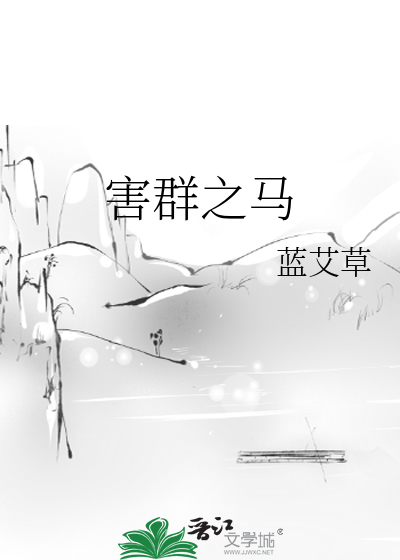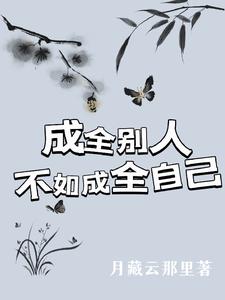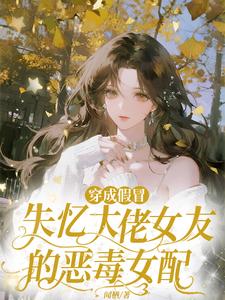A painted pleasure boat glided under the bridge, its bow occupied by a songstress strumming a pipa, the vessel momentarily obscuring the figure of Yao Luoge on the opposite shore.
Shen Miao turned away pensively. By the river, the colorful banners of teahouses and taverns fluttered in the dusk as Li Tiaozi carefully halted the mule cart, waiting for a caravan of foreign merchants to pass before continuing toward the private school where Li Gou'er studied.
Aunt Li and her husband hadn’t even gone home first—they insisted on detouring to the school to wait for Gou'er’s dismissal. Shen Miao accompanied them without complaint; the school wasn’t far, and she had no urgent matters. Besides, she had already noticed the bulging bundles on the cart. Aside from clothes and luggage, Aunt Li and her husband must have brought back plenty of treasures from Jinling for their son.
The private school Gou'er attended was the finest in the "school district" near Jinliang Bridge. The instructor, a scholarly man with a goat-like beard, was Mr. Qiu, a former provincial graduate who had failed the imperial examinations for twenty years before giving up. Ironically, after opening his school, luck favored him—two of his young pupils later became imperial scholars, skyrocketing his reputation. Now, his establishment was one of the most sought-after private academies in Bianjing, second only to the two great official schools.
Gou'er had originally failed the entrance exam for the Imperial Academy, so Aunt Li had spent considerable silver and pulled strings through some distant relative of Mr. Qiu’s to secure his spot. But after a year, the family struggled to afford the steep tuition, and Gou'er struggled just as much with his studies. Aunt Li was beginning to wonder if they should switch paths next year—perhaps apprenticing him to an old accountant would be wiser.
Mr. Qiu’s home stood near the Great Xiangguo Temple, beneath an elm tree outside Jinliang Bridge, earning his school the nickname "Elm Shade Academy."
Even before reaching the gate, the sound of loud recitations spilled over the walls. Elm seeds littered the ground, and the school’s young gatekeeper, pockets stuffed with them, approached as the cart stopped. "Who are you here for?"
"We’re waiting for a student to be dismissed," Aunt Li replied with a polite smile.
"Then move your cart behind the stone post over there," the boy instructed, pointing. "Don’t block the gate. The bell will ring in another quarter-hour."
"Thank you." They guided the cart to the side.
True to his word, the bell soon clanged.
Students poured out like a tide, book bags slung over their shoulders, cheering like freed birds. Aunt Li and Li Tiaozi had already dismounted and were scanning the crowd anxiously.
Shen Miao stood beside them, watching the children scamper down the steps. Her thoughts drifted to Sister Xiang, Chen Chuan, and Youyu, whom she had left in Father Xie’s care. She wondered how they were faring—Chen Chuan and Youyu were well-behaved, and even though Sister Xiang was a bit mischievous, surely she wasn’t causing too much trouble… right?
Besides, Tao and Fu Xing were there too.
After a moment’s consideration, Shen Miao reassured herself that everything was in order.
"Why can’t we see Gou'er?" Aunt Li stood on tiptoe, growing frantic. "Has he not come out yet?"
Li Tiaozi, equally worried, clenched his hands. "Could he have been kept behind for unfinished work? Maybe the teacher is punishing him again." Gou'er often dawdled over his assignments—some days, he’d write only a couple of characters by evening, his brush dry from disuse.
He had been caned by Mr. Qiu’s ruler more than once.
But Li Tiaozi knew his son wasn’t lazy. The boy was desperate to learn but sometimes just couldn’t focus. Neither he nor Aunt Li could read, so they couldn’t help much.
Recently, Ninth Brother from the Xie family had moved nearby, and Li Tiaozi often sent Gou'er to him for tutoring. It had worked—Gou'er had avoided several beatings. But now that Ninth Brother had returned to his own academy, had Gou'er slipped back into old habits?
The more he thought about it, the more anxious Li Tiaozi became.
"With so many children, he might just be lagging behind," Shen Miao offered, scanning the crowd. Soon, she spotted Li Gou'er and pointed, amused. "There he is!"
"Where?" Aunt Li nearly jumped, still unable to pick out her slender son.
"That boy in the russet robe with the bamboo bookcase," Shen Miao clarified.
Aunt Li and Li Tiaozi finally fixed their gazes—and their eyes widened in disbelief. The round-faced child before them couldn’t possibly be their Gou'er… could it? Squinting, they studied his features until recognition dawned. It really was him!
Gou'er’s face had swollen like a steamed bun.
"Gou'er! Over here!" Shen Miao waved. "Your parents are back!"
Spotting them, Gou'er gripped his book straps and dashed over. "Mother! When did you return?"
"Just now. Come here, let me look at you properly." Aunt Li laughed, pulling him close to inspect him, then gasped. "A month apart, and you’ve grown taller… and much rounder."
"Sister Shen Miao serves three meals a day, plus snacks in the afternoon," Gou'er admitted sheepishly, scratching his cheek. And her cooking was so delicious that nothing ever went to waste. Between eating and sitting at his desk, he’d puffed up like a balloon.
Shen Miao chuckled. "Nonsense. He’s just healthy. Come, let’s go home. You can talk on the way."
"Round is good—means he’s strong," Aunt Li agreed, recovering from her shock. She affectionately ruffled his hair, took his bookcase, and clasped his hand. "I brought you so many treasures from Jinling—things you’ll never find in Bianjing!"
"Really? What did you get?" Gou'er’s eyes sparkled.
"Remember how you wanted a better nine-linked puzzle than the Zeng boy’s? Well, I bought you one from the Wang Family’s school in Wuyi Alley! It’s copper, engraved with their family motto’s riddles—so fine! And there’s this book, Illustrated Annals of the Six Dynasties. You asked me what Jinling looks like, but I couldn’t describe it well. This has pictures—and words I can’t read—but it shows White Egret Isle and Stone City, all so beautiful! Oh, and these colored pebbles—they say you can only find them in Jinling..."
Aunt Li chattered on. Though past forty, dressed in plain hemp with a headscarf and still smelling faintly of ducks, her face glowed as she recounted Jinling’s wonders. Watching her, Shen Miao felt an inexplicable pang in her chest.
Aunt Li, a woman who had spent half her lifetime trapped in the mundane routines of daily chores and scraps of fabric, finally stepped beyond the gates of Bianjing for the first time. She witnessed the majestic sunrise over the canal, listened to the folk songs of lotus-picking girls in Wu dialect, and walked under the moonlight reflected on the Twenty-Four Bridges... It was as if the misty rains of Jinling had cleansed her soul. Her eyes, which had always squinted at others with dissatisfaction, now sparkled with newfound brightness.
Setting aside those born with malice, sometimes narrow-mindedness and pettiness stem simply from ignorance of how vast life can be. Take Aunt Li, for instance—for over forty years, she had never seen the world beyond the nine city gates.
Shen Miao rested her chin on her hands, quietly watching Aunt Li, whose eyes gleamed as she animatedly gestured to Li Gou'er about the miles-long procession of lanterns along the Qinhuai River. A smile tugged at Shen Miao's lips.
Upon returning to Willow East Lane, Shen Miao urged Aunt Li and Li Tiaozi to take Li Gou'er home and rest properly. She then invited them, "Uncle Li and Aunt Li, take today to rest. Come to my place tomorrow evening—I'll prepare a feast to welcome you back."
But Aunt Li waved her off firmly, declaring, "Your Uncle Li and I already agreed. Tomorrow, he’s taking me back to my parents' home. I bought two bolts of silk for my mother—she’s never seen Jinling fabric before!"
This was her first trip far from home, and she’d encountered so many wonders. Of course, she had to show off to her family first! After flaunting her treasures at her parents', she’d visit her sisters-in-law, then make rounds through the entire neighborhood. Who had time to dawdle at Shen Miao’s place?
Ah, Shen Miao understood instantly and suppressed a laugh. "Of course, of course. Come by whenever you’re free."
"I’ll rest for a few days first. Once I’m back from my parents', I’ll go to the duck farm every morning to help out. Once the hired hands get the hang of things, I’ll switch to every other day—just to keep them honest and make sure they’re not slacking behind your back," Aunt Li added quickly, worried Shen Miao might take offense. She even explained, "After all, Gou'er is still young, and the household needs tending too."
Shen Miao had originally arranged for Aunt Li to be a consultant at the duck farm—a role that allowed her to earn some silver while managing her family. She had no intention of being a harsh taskmaster, forcing her to work right after returning. With a chuckle, she reassured her, "No rush at all. You’ve had a long journey—rest as long as you need."
Only then did Aunt Li nod in satisfaction, hugging Li Gou'er as they headed down the lane. Li Tiaozi lagged behind, carrying the larger luggage on his shoulder pole. From his bundle, he pulled out a box of Yuhua stones and offered it with a sheepish grin. "Didn’t know what to get for Sister Xiang and the others, so I picked these stones for the children to play with."
"You shouldn’t have! These aren’t cheap, are they?" Shen Miao thanked him warmly.
"It’s nothing—just a small token. Oh, and this mule cart was borrowed from Officer Tong of the canal bureau. I’m not sure where to find him, so I’ll need to trouble you to send someone to return it."
"Don’t worry, I’ll handle it," Shen Miao assured him. "I’ll have Tang Er take care of it. You go on home now."
Li Tiaozi hurried after his wife and son, balancing the load on his shoulder pole.
Shen Miao watched them disappear into their home before turning to push open her own courtyard gate.
The yard was eerily quiet.
Bodies sprawled haphazardly across the veranda, fast asleep.
Chen Chuan and Youyu lay side by side, each sporting two comically upright pigtails, red dots on their foreheads, and lips smeared with bright rouge. Sister Xiang slept beside them, her wild hair stuffed with flowers and a clump of mud stuck to her cheek—was she pretending to be a matchmaker? Shen Miao leaned closer, studying the lopsided, messy buns on her head. Had she done this herself?
Next to her, Father Xie was no better off. Flowers adorned his hair, his cheeks were painted with two bright red circles, and even his eyelids and lips were smeared crimson. The two elegant strands of hair at his temples had been braided, and a red silk ribbon hung around his neck. Despite the ghastly makeup, he slept soundly, looking utterly disheveled.
Shen Miao pressed her lips together, straining not to burst out laughing.
Tiptoeing into the kitchen, she was greeted by the rich aroma of fish balls. Tang Er and Fu Xing were busy making more, and they grinned when they saw her. "The fish ball noodles sold like hotcakes today! We ran out of the batch you made yesterday, so we’re working on a new batch."
Shen Miao smiled. "You’ve worked hard."
"Not at all! Don’t stand on ceremony with us."
Tao walked in, arms stacked high with bowls, and dumped them into the sink. Wiping her apron, she jerked her chin toward the yard, barely suppressing her laughter. "Master Xie got dragged into Sister Xiang’s games all day. First, she played barber with him—until he flat-out refused to let her near his beard. So then she made him play the bride while she acted as the wedding attendant, the old lady who dresses the bride. Chen Chuan and Youyu were the ‘bed-rolling children’..."
Tao couldn’t finish without shaking with laughter.
Shen Miao clutched her stomach, equally amused. Sister Xiang never chose typical roles like the bride or noble lady in her games. She always went for the unconventional—warrior women, matchmakers, wedding attendants, or barbers.
Half a month flew by, and the duck farm gradually settled into a rhythm. With Aunt Li’s guidance, Hong Ba’s family quickly adapted to farm life and learned the habits of the Jinling white ducks. The flock had grown noticeably plumper.
Aside from a dozen ducks that succumbed to illness after a few rainy days, the rest had acclimated to Bianjing’s climate and were thriving, growing twice as fast as the local mallards.
The ducklings’ yellow fuzz was fading, replaced by proper feathers on their wings and tails. Aunt Li even reported exciting news—the heartiest ducks had already reached a pound in weight, while the smaller ones were at least six ounces.
Based on her past experience, Aunt Li estimated that with a diet of fish meal, snails, and grain, these ducks could reach five to six pounds in just a month and a half—ready to be sold as roast ducks.
Of course, the breeding ducks would need to be separated first.
The dozen or so white ducks and broody hens Shen Miao had kept at home were now moved to the farm. These ducks, already six months old, laid two eggs each daily. The first batch of thirty-some eggs had been entrusted to the most dedicated broody hen, and after ten days of incubation, they’d hatch in another half-month.
Shen Miao even gave Aunt Li extra funds to buy more broody hens—the farm’s dedicated incubators. Each hen could hatch ten to twenty eggs, diligently turning them with their claws.
In addition to buying more hens for egg incubation, Hong Ba mentioned that other duck farms used vats or wooden barrels for hatching—lining them with cotton and rice husks, placing them near the kitchen stove, and relying on residual heat to keep the eggs warm. However, this method required someone to watch over them around the clock and manually turn the eggs two or three times a day. It was labor-intensive, but during peak egg-laying seasons when hens were insufficient, it became a necessary solution.
As for the wheat fields next to the duck farm, after construction, eight acres remained planted with wheat seedlings. Shen Miao also asked Third Bai to help lease the land to trustworthy, upright landless peasants from Bai Village.
At the time, land rent typically took about half of the harvest, and for more fertile fields, it could go up to sixty percent. But Shen Miao decided to charge less, as the peasant couple Third Bai introduced had four children but couldn’t even afford a pair of shoes.
After some thought, she signed a two-year contract with them, taking only forty percent of each season’s wheat yield. Moreover, since the wheat seedlings had already been planted before the land was confiscated by the authorities, Shen Miao didn’t charge for that, allowing them to save on seed costs.
The family of six, grateful for Shen Miao’s leniency, moved from Bai Village to live beside the wheat fields on the very day they stamped their fingerprints on the contract.
They borrowed a corner adjacent to the duck farm, using its brick wall as a load-bearing structure, and built four thatched huts with wooden poles, settling in just like that.
Shen Miao felt a pang of sadness seeing their living conditions. Later, when she visited the duck farm, she brought them old tables, chairs, pots, and dishes that had been gathering dust in her storage, along with hand-me-down clothes and shoes from Sister Xiang, Ji Brother, and Chen Chuan for their children.
Overwhelmed with gratitude, they escorted her all the way to the roadside when she left, standing there watching until her carriage disappeared from sight.
After all this, she realized… she had somehow become a small landowner.
But leasing out the land wasn’t about becoming a landlord—she simply lacked the energy to manage the fields herself. The duck farm wasn’t yet ready to expand to ten acres or raise thousands of ducks, and letting the land lie fallow seemed wasteful, so renting it out made more sense.
She didn’t rely on the land for survival, and reducing the rent by ten percent meant the tenant farmers could better provide for their children.
As for the fast-food shop, Ding Wushi had grown leaner from cooking large pots of food daily, though his arms had become more muscular. Now, he could effortlessly handle the heavy wok and worked with increasing efficiency.
Orders had now reached nearly two hundred servings.
Several shops in the outer city had also started specializing in group meals, with some setting up stalls at the nine major docks outside the city, cooking on the spot. These docks were closer to Chenliu and Chenqiao Town, allowing them to buy cheap vegetables and fruits directly from farmers. Their group meals catered mainly to laborers like porters and boat trackers, operating differently from Shen Miao’s business.
The dock stalls resembled modern-day buffet-style eateries—whatever vegetables the farmers supplied, that’s what they cooked that day, mostly serving simple vegetable dishes with steamed buns. Customers couldn’t choose their meals, but the portions were generous, filling, and cheap.
They operated all day, reportedly run by several families of cooks who took turns at the stove, keeping the fires burning even late at night.
Liu Doukou had even gone to try their food and found it decent, priced incredibly low—three vegetable dishes with rice cost just twelve coins, while a single dish stuffed in a steamed bun went for as little as seven coins.
Rumor had it the business was booming, with even the overseer of the boat trackers occasionally stopping by.
Biting into a bun she’d bought from the outer city, Liu Doukou grumbled, “This was Sister Shen’s idea, and now they’re making money off it.”
Shen Miao laughed. “They’re doing it differently, though. It’s fine.”
She didn’t feel resentful—if anything, she marveled at the ingenuity of Song Dynasty merchants. This was, after all, a dynasty renowned for commerce. In Bianjing, competition was fierce in every trade, especially in the inner city, where shops of all kinds lined the streets.
Shen Miao’s group meals succeeded because she’d found her niche, just like these dock stall operators.
This train of thought led her to Kang’s Eatery.
Lately, whenever she passed by the shop while buying groceries, she’d pause to look. The door still bore a red “For Rent” notice—it remained unleased.
Shen Miao gazed up at it, lost in thought. Though a bit worn, Kang’s shop was spacious, larger than her two shops combined, and even had two floors. Its back faced the Bian River, and the second floor had an illegally built terrace overlooking the water.
A prime location like this surely commanded a steep rent.
If it were hers, Shen Miao would never waste such a large space on humble noodle soup. Shopkeeper Kang should’ve invested in lavish renovations, aiming not for the heights of Fan Tower but at least matching Bianjing’s famed “Seventy-Two Official Wineries.”
Then again, perhaps he’d failed to secure an official winery license. Those weren’t easy to obtain.
The Song Dynasty enforced a strict alcohol monopoly—only “official wineries” that purchased government-approved yeast could legally brew and sell liquor. Others, whether peasants, nobles, or officials, could only make alcohol for personal consumption.
For instance, the Gu family’s small winery still displayed a faded “Official Winery” plaque, the most valuable heirloom they had—proof that their ancestors had once held a government license.
Aunt Li had once told Shen Miao that the Gus used to be the wealthiest family in the neighborhood, owning three or four shops and vast farmland outside the city. But the grandfather, blinded by favoritism, spoiled his youngest son—Gu Tusu’s uncle—a notorious gambler. The family fortune was squandered, the uncle died under debt collectors’ pressure, and the grandfather soon followed, consumed by rage.
By the time Uncle Gu inherited the winery, all that remained was this tiny shop, a vat of yeast, and a mountain of debt. Even now, the family barely scraped by, still clinging to the shop—who knew if they’d ever repay what they owed?
All this to say, Shen Miao had always felt Kang’s Eatery’s business model seemed off. Did selling noodle soup really require such a large space? Even their later attempt at group meals felt haphazard, like they’d rushed into it without a plan. But now that the shop was closed, her opinions were just hindsight.
“Eh? Isn’t this Madam Shen?”
A voice called out cheerfully behind her.
Shen Miao turned to see Yao Luoge, a jangling cluster of keys hanging from his waist.
He beamed as he approached. “Would Madam Shen like to take a look inside? I happen to have the landlord’s keys.”
Shen Miao waved her hands. “No, no, I couldn’t possibly afford it.”
“It’s only thirty strings of cash a month.”
She choked. “Only? That’s far too expensive!”
Yao Luoge maintained his smile: "I don't believe Madam Shen would find it expensive. Business is booming for you—surely you’d earn it back in just a few days?"
Flashing wealth was never wise. Shen Miao immediately pursed her lips and denied it: "Nonsense! Since when does money rain from the sky? Tell me where, and I’ll grab a sack to collect it right away."
"Then why is Madam Shen standing here?" Yao Luoge asked curiously.
Seizing the opportunity, Shen Miao inquired about the reason for Kang Ji’s closure.
Yao Luoge, well-informed and familiar with Shen Miao, spilled the beans without hesitation: "That Shopkeeper Kang—he started as the owner of a small eatery. He hired an old cook with exceptional skills, famous for his lamb noodle soup. Kang Ji’s reputation was built on that old cook’s broth. Later, business flourished, so Shopkeeper Kang leased this larger shop, hired more chefs, and expanded the menu. At first, things were still decent, but then..."
Yao Luoge’s gaze lingered on Shen Miao for a moment, though he said nothing about it, only smiling. "Then... business declined. That old cook, proud of his craft, had a temper too. He clashed with the other kitchen staff, who ganged up to make his life miserable. The place became a battleground, so Shopkeeper Kang let him go. After that, the quality of Kang Ji’s dishes plummeted, and customers dwindled. Later, attempts at new ventures failed, half the newly hired chefs were dismissed, and eventually, they couldn’t even pay the staff’s wages... So, they shut down."
So, it was reckless expansion without proper planning and poor employee management. Shen Miao gave an understanding "Oh," but why did Yao Luoge’s look seem so pointed? She had nothing to do with Kang Ji!
If anything, she’d simply worked hard to grow her own business—no underhanded tricks to sabotage others. If someone else’s shop failed, they couldn’t blame her success, could they?
After the gossip, Shen Miao bid Yao Luoge farewell.
Yao Luoge pressed on: "Madam Shen, really not interested in renting? Not even tempted? Just thirty strings of cash a month—a two-story shop by the river!"
Shen Miao stood firm: "No!"
She hurried off, turning instead to an elderly woman selling fresh bamboo leaves from her basket by the roadside.
With the Dragon Boat Festival approaching, street vendors peddling nine-child zongzi, mugwort leaves, pine nuts, and five-colored threads multiplied.
Shen Miao naturally wouldn’t miss the festivities.
She’d devised a new seasonal dish for the occasion.
Besides, Ji Brother and Xie Qi would both return home for the holiday—the Great Song’s mandated day off for the festival.
And she’d promised Ninth Brother she’d make braised pork zongzi for him.
Though most zongzi in Bianliang were sweet at this time. The method went: "Wash glutinous rice clean, mix with dates, chestnuts, dried persimmons, ginkgo nuts, and red beans, then wrap in reed or bamboo leaves." The renowned gourmet Su Shi once remarked, "Not only do I find loquats on my plate, but sometimes I stumble upon bayberries in my zongzi"—shockingly, he loved bayberry zongzi. What an obscure taste.
But Shen Miao? She was a staunch savory zongzi purist.
No compromises! For the Dragon Boat Festival, it had to be meat zongzi. Meat zongzi!







